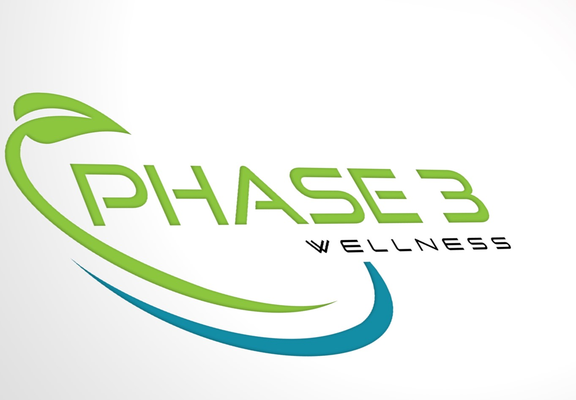Covington Naturopath ...Energy Drinks Danger... A Risk To Your Heart Within 90 Minutes Of Drinking
Posted by Keith Henry on
Energy Drinks: A Hidden Risk to Your Heart
For many people, starting the day with a cup of coffee is the norm for an energy boost. But over the years, energy drinks have become increasingly popular—especially among younger individuals—as the go-to for a quick pick-me-up.
While they may seem harmless, there’s a growing body of evidence that these sugary, caffeinated beverages could be doing more harm than good, particularly when it comes to heart health.

How Energy Drinks Impact Your Blood Flow
One of the most concerning effects of energy drinks is their impact on blood vessels. Within just 90 minutes of drinking one, studies show blood vessels can constrict by as much as 50%. This reduced blood flow limits the supply of oxygen and nutrients to vital organs, putting unnecessary strain on the body.
When blood flow is constricted to the heart, the risk of heart attacks and strokes increases dramatically. And energy drinks don’t just stop there—their high sugar content can spike blood sugar levels, contributing to metabolic issues like diabetes and prediabetes.
What the Research Says
A study conducted at the McGovern Medical School at UT Health looked at 44 healthy college students in their 20s. These were non-smoking participants with no underlying health issues, making them ideal candidates for observing the effects of energy drinks.
The researchers focused on the endothelium, the thin layer lining the inside of blood vessels that plays a critical role in heart health. Using ultrasound, they measured arterial blood flow before and after participants drank a 24-ounce energy drink. The results were staggering:
- After 90 minutes, the arteries’ inner diameter shrank by almost half, dropping from 5.1% to 2.8% on average.
- This constriction significantly reduced blood flow, making it harder for the heart to pump blood efficiently.
Click Here To Find Out More About Our Amazing Wellness Bio-Scan
Researchers attributed these effects to the high sugar, caffeine, and other stimulants found in energy drinks. For example, a single 250-ml can of Red Bull contains about 80 mg of caffeine—2.5 times the amount in a can of soda—and 37 grams of sugar, which is more than nine teaspoons.
The combination of caffeine, which triggers adrenaline release, and sugar, which inflames and narrows blood vessels, creates a dangerous cocktail that can overwork the cardiovascular system.
Click Here To Find Out More About Our Amazing Wellness Bio-Scan
The Hidden Dangers for Young Athletes
Young athletes, in particular, are at risk. Combining high-intensity exercise with energy drinks can amplify cardiovascular strain. This dangerous mix has been linked to exercise-induced arrhythmias and, in severe cases, sudden cardiac arrest.
According to the National Center for Complementary and Integrative Health, about one-third of teenagers between the ages of 12 and 17 consume energy drinks regularly, exposing them to long-term health risks at an early age.
Why You Should Think Twice About Energy Drinks
Regular consumption of energy drinks doesn’t just lead to short-term issues like blood vessel constriction. Over time, these beverages can contribute to:
- High Blood Pressure (Hypertension): Prolonged caffeine and sugar intake can damage arterial walls, leading to persistent high blood pressure.
- Metabolic Disorders: Frequent spikes in blood sugar can reduce insulin sensitivity, increasing the risk of type 2 diabetes.
- Sleep Disruptions: Excessive caffeine can interfere with sleep patterns, leading to chronic fatigue and dependence on stimulants.
Better Ways to Boost Energy Naturally
The good news is there are plenty of healthier, natural alternatives to energy drinks. These options provide sustainable energy without the harmful side effects.
- Coconut Water: A natural source of electrolytes, coconut water is perfect for hydration and energy replenishment, especially after workouts.
- Fresh Juices: Blended fruit and vegetable juices offer vitamins, minerals, and natural sugars for sustained energy without the crash.
- Protein Smoothies: Combining fruits, nuts, and protein-rich ingredients can give you a nutritious and energizing start to your day.
Parents should encourage teenagers to explore these healthier options and discuss the risks associated with energy drinks. Awareness is the first step toward making better choices for long-term health.
Final Thoughts
While energy drinks promise quick energy, the risks they pose to heart health make them far from worth it. With research now confirming their link to blood vessel damage, heart strain, and metabolic issues, these drinks should be consumed sparingly—if at all.
For a healthier, more sustainable energy boost, focus on natural alternatives that nourish your body instead of taxing it. In the long run, your heart will thank you.
Click Here To Find Out More About Our Amazing Wellness Bio-Scan
References
- Higgins, J. P., et al. (2018). Energy Drinks and Endothelial Function: A Review of the Literature. International Journal of Cardiology.
- National Center for Complementary and Integrative Health (NCCIH). (2021). Energy Drinks: What You Need to Know.
- Mayo Clinic Staff. (2022). Caffeine: How Much is Too Much? Mayo Clinic.
- Harvard T.H. Chan School of Public Health. (2020). Sugary Drinks and Heart Health.
- McGovern Medical School at UT Health. (2019). Effects of Energy Drinks on Young Adults’ Blood Vessel Function.
Share this post
- Tags: healing, healing foods, healthy foods, natural doctor, natural medicine, naturopath, naturopathic care
